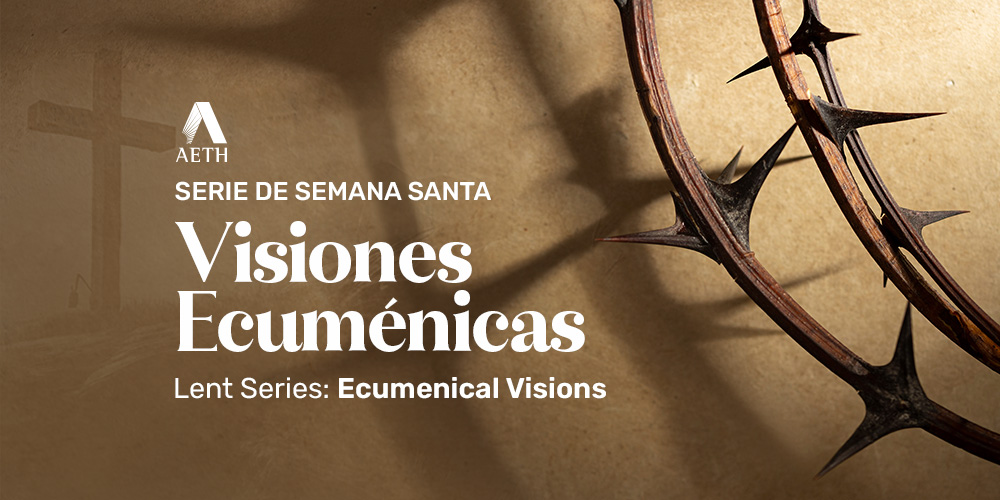
La mesa del Señor: Lugar de Encuentro
por: Jessica Lugo Meléndez
Lucas 22: 14-23
La Cena del Señor encierra en su celebración el pasado, presente y futuro de la obra salvífica y redentora de nuestro Señor Jesucristo. La última cena se presenta teniendo como telón de fondo la pascua judía que celebraba la liberación de Egipto y la alianza al Sinaí. Lucas encaja elementos de la Pascua antigua con la institución de la nueva. De ahí las dos copas. Si enmarcamos este acercamiento en el génesis del significado de la Pascua, podemos entonces afirmar que la memoria de Jesús es también memoria de liberación, equidad, inclusión y redención comunitaria, convirtiendo Su mesa en un lugar de encuentro. El Jesús que se presenta en Lucas, pretende configurar un nuevo mundo simbólico, en el que la misericordia sustituye a la pureza. El acceso a Dios no consiste en un proceso de separaciones y aislamientos, sino de unidad e inclusión.
Desde esta visión, la Santa Cena es un lugar de encuentro en donde hacemos memoria de nuestro Salvador y celebramos, unidos, la libertad recibida por parte de Jesús y la cual deberíamos compartir pues para toda la humanidad. La mesa de Jesús nos da el espacio para encontrarnos y recordar la entrega del Hijo de Dios para la reconciliación del mundo. A pesar de las muchas diferencias, algo siempre ha permanecido unánime entre las diferentes tradiciones cristianas, y esto es que la celebración de la Santa Cena simboliza ese vínculo de unidad entre Dios y los cristianos.1 Es en el acto de la Santa Cena donde los hombres y mujeres encuentran a Dios a través de su propia historia, para convertirse entonces en la revelación eficaz del llamado a la comunión con Dios en unión a toda la humanidad.2 Es por esto que la cena no debe limitarse a una relación vertical con el Señor -es decir Dios y yo, Dios y tú, Dios y nosotros- sino a una relación horizontal en donde la Mesa de Jesús también tenga que ver con cómo todos somos uno entre iguales y con la creación. Que este tiempo de cuaresma, podamos reflexionar en lo que la mesa del Señor significa para cada uno de nosotros como creyentes, que podamos presentarla como alternativa salvífica que reivindica a todo ser humano que se acerca en fe para ser transformado. ¡Encontrémonos en la Mesa del Señor!
_______
1 Justo L. González. Breve Historia de las Doctrinas Cristianas. (Nashville: Abingdon Press, 2007), 184.
2 Gustavo Gutiérrez, Teología de la Liberación (Salamanca: Ediciones Sígueme, 1975), 329.

Dra. Jessica Lugo Meléndez
La Dra. Jessica Lugo Meléndez es la Directora Ejecutiva de la Asociación para la Educación Teológica Hispana (AETH). Es ministra ordanda de las iglesias bautistas americanas, puertorriqueña y criada en el estado de la Florida. Pastora, educadora y administradora, su pasión es promover la educación teológica entre hombres y mujeres que se capacitan para un quehacer ministerial responsable en sus iglesias y comunidades.
Dr. Jessica Lugo Meléndez is the Executive Director of the Association for Hispanic Theological Education (AETH). She is a Puerto Rican ordained minister of the American Baptist Churches raised in the state of Florida. Pastor, educator, and administrator, her passion is to promote theological education among men and women who are being trained for responsible ministry in their churches and communities.
The Lord’s Table: Meeting Place
by: Jessica Lugo Meléndez
Luke 22:14-23
The celebration of the Lord’s Supper encapsulates the entirety of the salvific and redemptive work of our Lord Jesus Christ across time—past, present, and future. The Last Supper is presented against the backdrop of the Jewish Passover celebrating the liberation from Egypt and the covenant to Sinai. Luke ingeniously intertwines elements of the old Passover with the establishment of the new covenant, exemplified by the presence of two cups. When we contextualize this within the genesis of Easter’s significance, we affirm that remembering Jesus also recalls themes of liberation, equity, inclusion, and communal redemption, transforming His table into a nexus of connection, a place to meet one another. The Jesus portrayed in Luke endeavors to shape a new symbolic realm, wherein mercy supersedes ritual purity. Access to God isn’t about segregation and solitude but about unity and inclusivity making the Lord’s table a meeting place.
From this perspective, the Lord’s Supper serves as a sacred gathering point where we recall our Savior and collectively rejoice in the freedom bestowed upon us by Jesus—a freedom meant to be shared with all humanity. Jesus’ table provides us with a space to convene and commemorate the gift of the Son of God, whose sacrifice aims at the reconciliation of the entire world. Despite the many differences, one thing has always remained unanimous among the different Christian traditions, and that is that the celebration of the Lord’s Supper symbolizes that bond of unity between God and Christians. In the act of Holy Communion, individuals engage with God through their own personal narratives, embodying a potent revelation of the call to communion not only with God but also with the entirety of humanity. Therefore, the significance of the supper extends beyond a mere vertical relationship with the Lord—between God and individuals, or God and communities—but encompasses a horizontal dimension, emphasizing our interconnectedness and equality with one another and with the created world. During this Lenten season, let us reflect deeply on the profound meaning of the Lord’s table for each of us as believers. Let us present it as a salvific alternative that uplifts every individual who approaches it in faith, seeking transformation. Together, let us gather at the Lord’s Table, united in our shared journey of faith and redemption.
